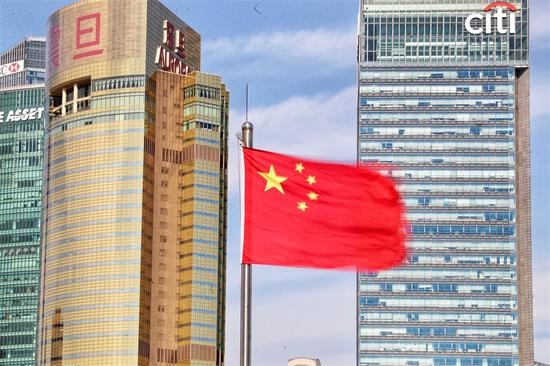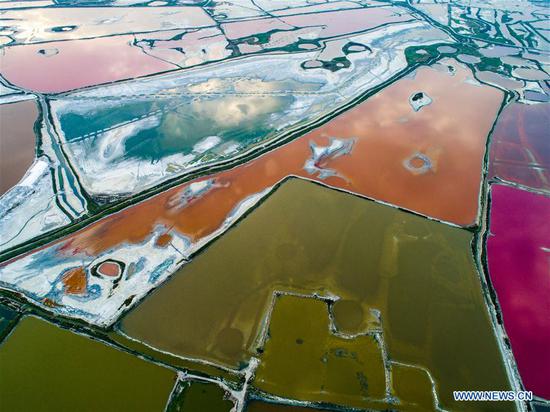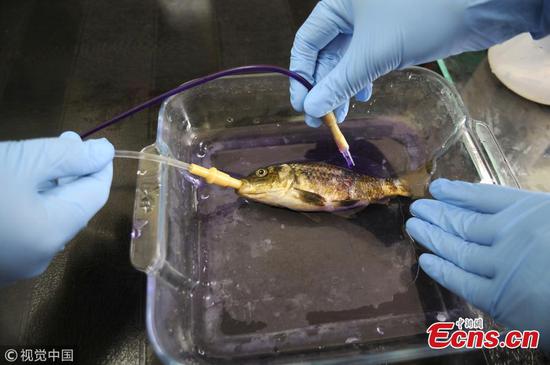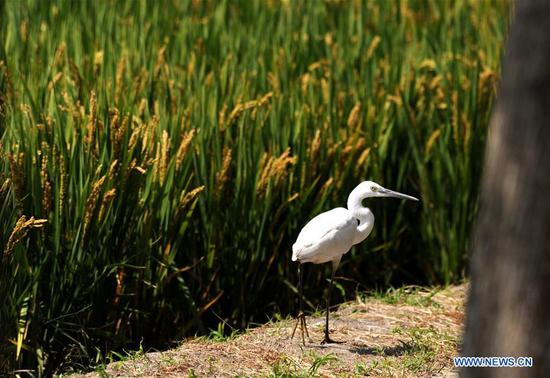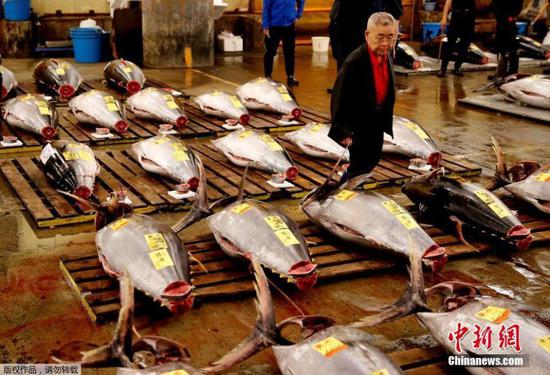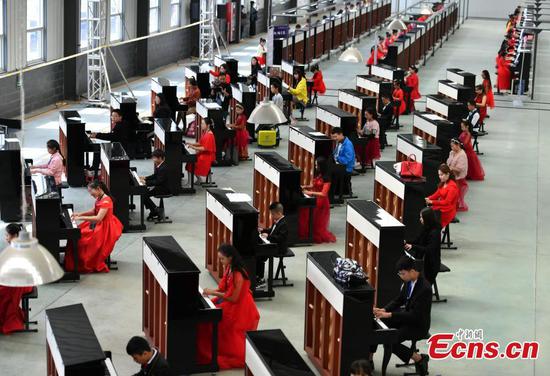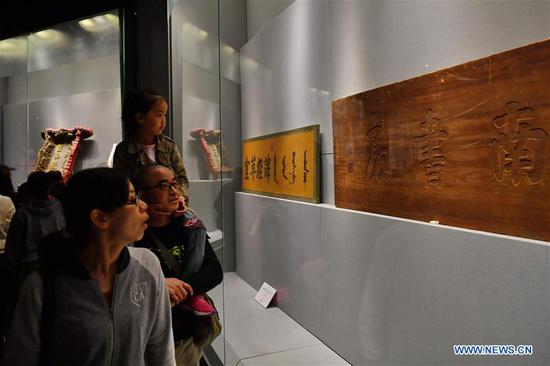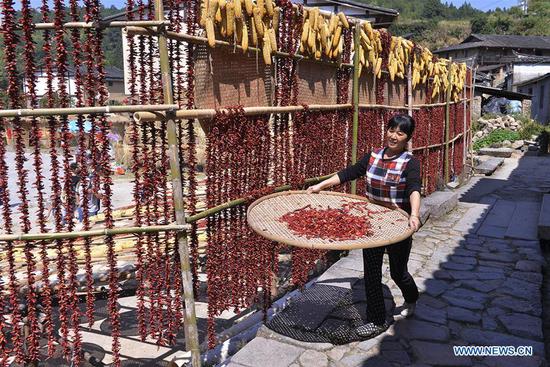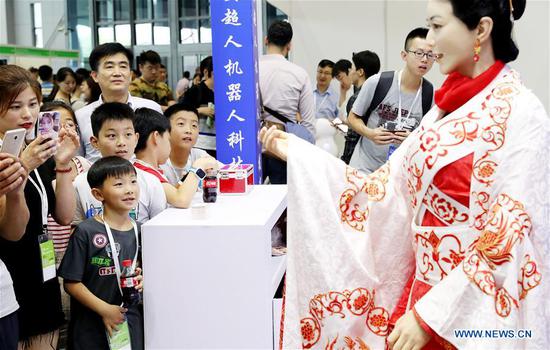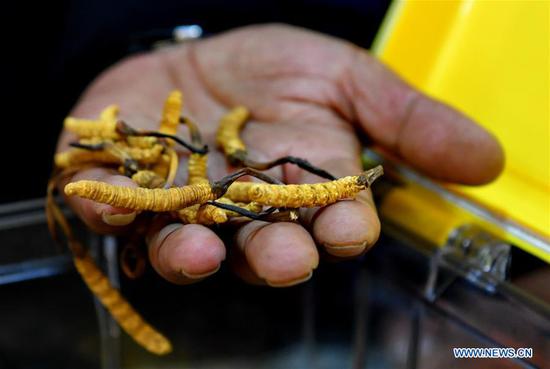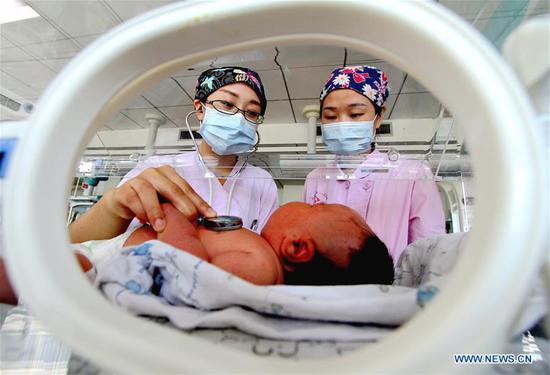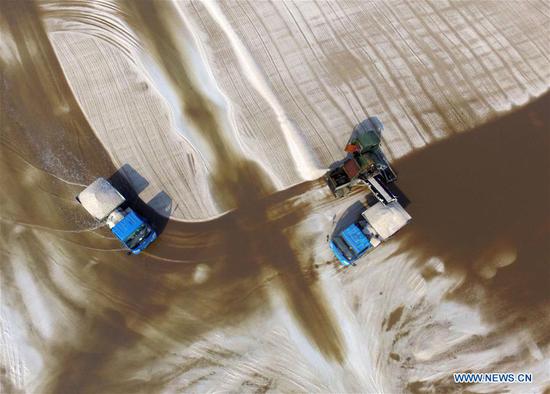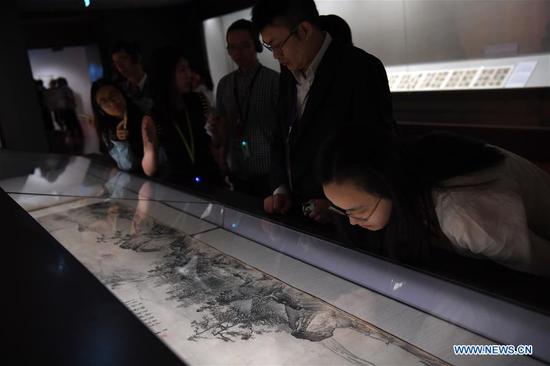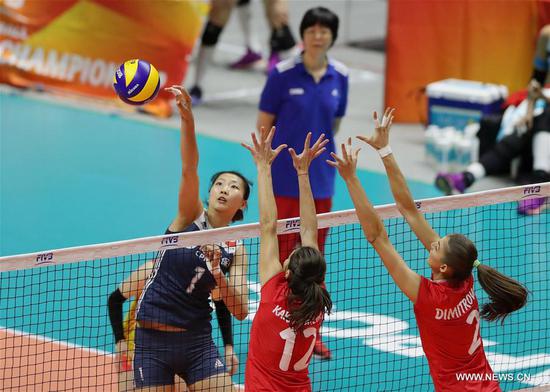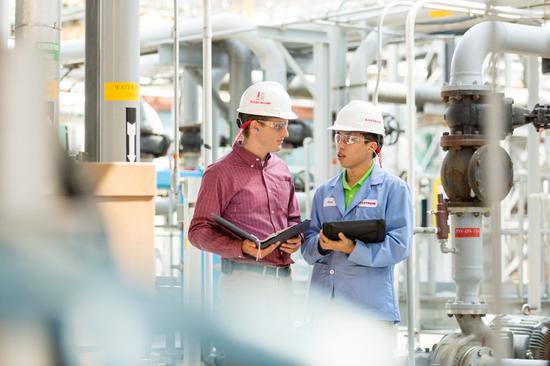
A Chinese employee (right) interacts with his foreigner colleague at an Eastman Chemical Company plant at Kingsport, Tennessee, the U.S. on May 22. (Photo provided to China Daily)
China has absorbed a six-year high in total foreign investment in the first half of 2018, despite global trade tensions and economic uncertainties, an official document said.
Experts, interviewed about the results, said quality-oriented economic growth and more opening-up policies are expected to further cement China's momentum in attracting foreign capital.
Net foreign investment inflow surged 45 percent year-on-year to $294 billion from January to June, the highest since 2012, according to a document issued by the State Administration of Foreign Exchange.
Foreign direct investment — when a foreign investor establishes operations or acquires business assets in a country — constituted 43 percent of the total inflow and increased by 1.3 times year-on-year, reversing the drop during the past two years.
"Compared with some emerging market economies suffering from fluctuations last year, China's steady economic growth and the relatively stable yuan boosted foreign investors' confidence in the country's mid- and long-term growth prospects, prompting the rebound in direct investment," said Zhang Zhiwei, chief China economist and head of China equity strategy at Deutsche Bank.
Net inflow of foreign investment in China's securities markets jumped by 4.3 times year-on-year in the first six months, raising its proportion in the total inflow to 37 percent, officials said.
Zhang attributed the jump largely to China's opening-up policies in bond markets, as the net inflow to debt securities rose 7.5 times and accounted for nearly 70 percent of the net inflow of portfolio investments.
A series of opening-up policies, especially northbound trading under the mainland-Hong Kong bond connect program that took effect in July of last year, has greatly streamlined procedures for foreign institutional investors to participate in mainland bond markets, Zhang said.
Direct investments were also boosted by opening-up policies, such as broader and easier market access for foreign businesses, as well as easing restrictions on the proportion of foreign equity in mainland-registered companies, experts said.
"The gradual cancellation of upper equity limits for foreign capital in various industries gives foreign investors a great incentive to invest in China," said Liu Chunsheng, an associate professor at Central University of Finance and Economics.
For instance, three months after China's promise of eliminating the 50 percent upper limit for foreign equity ownership in new energy vehicle manufacturers within the year, new energy vehicle giant Tesla of the United States announced its plan in July to establish a wholly owned factory in Shanghai.
Liu said China's huge and upgrading consumer market, as well as its improving business environment and infrastructure networks, also contributed to the first half's surge in direct investment and will continue to attract foreign capital in the future.
Foreign businesses will find it difficult to ignore China's huge consumer market, and direct investments in China will enable them to get closer to Chinese consumers, enhancing efficiency and reducing costs, he said.
Dong Dengxin, director of the Finance and Securities Institute at Wuhan University of Science and Technology, expected China's net inflow of foreign direct investment to maintain a growth rate — at least 8 percent year-on-year — higher than GDP growth.
Steady and high-quality economic growth featuring industrial upgrades is expected to attract more foreign businesses in high-end manufacturing and services to invest in China, benefiting themselves and the country's economic development, Dong said.
Experts also contended China's securities markets, both bond and stock markets, will continue to attract foreign capital. Zhang from Deutsche Bank estimated that overseas investors now hold only about 2 percent of China's bond markets, leaving lots of room for increases.
But Liu said there is an expectation that U.S. interest rate hikes may negatively affect China's inflow into debt securities. External uncertainties and other countries' policies to attract foreign capital may also pressure China's inflow of foreign investments, he added.
"To keep attracting foreign investments, China should stick to strategies of reform and opening-up and keep addressing the weak links of its economic development," he said.










